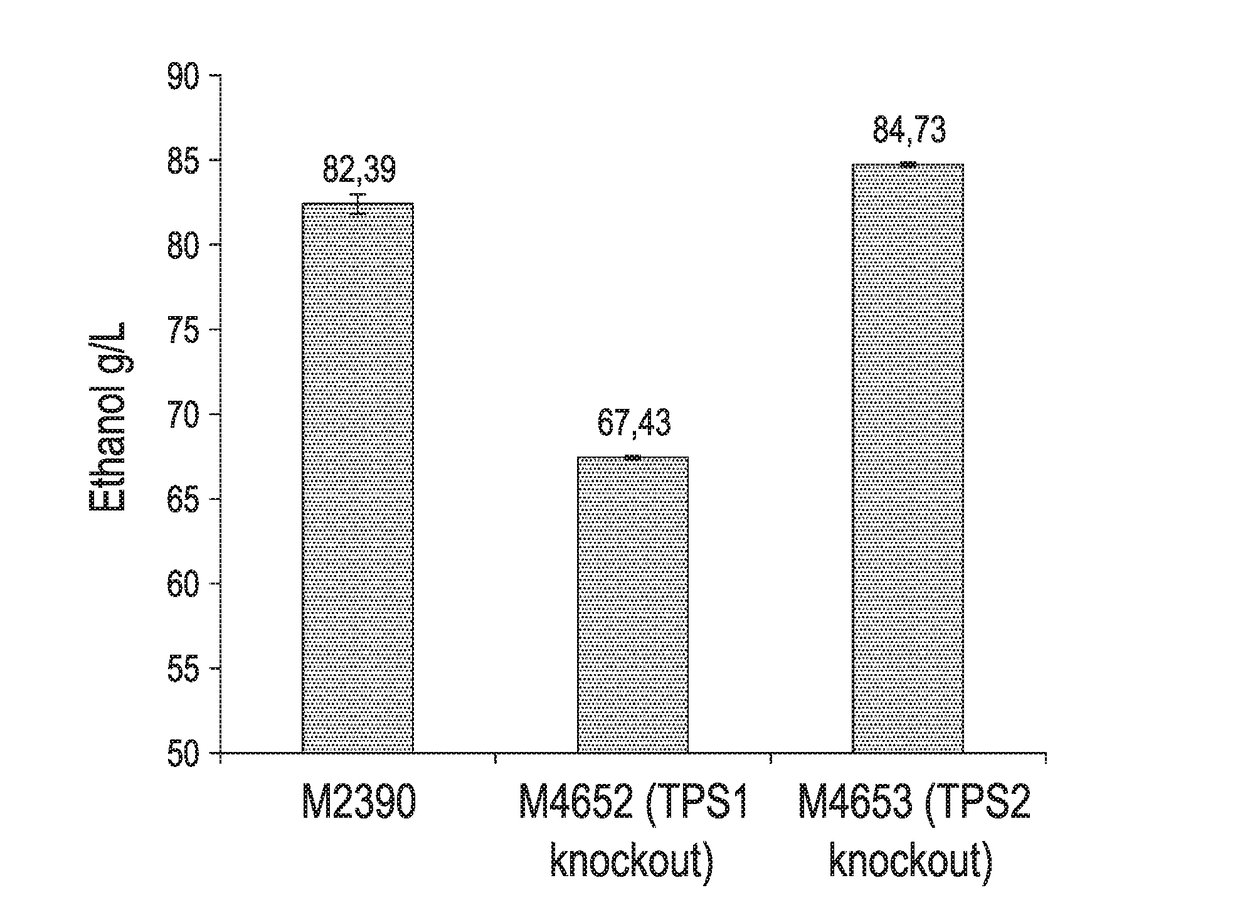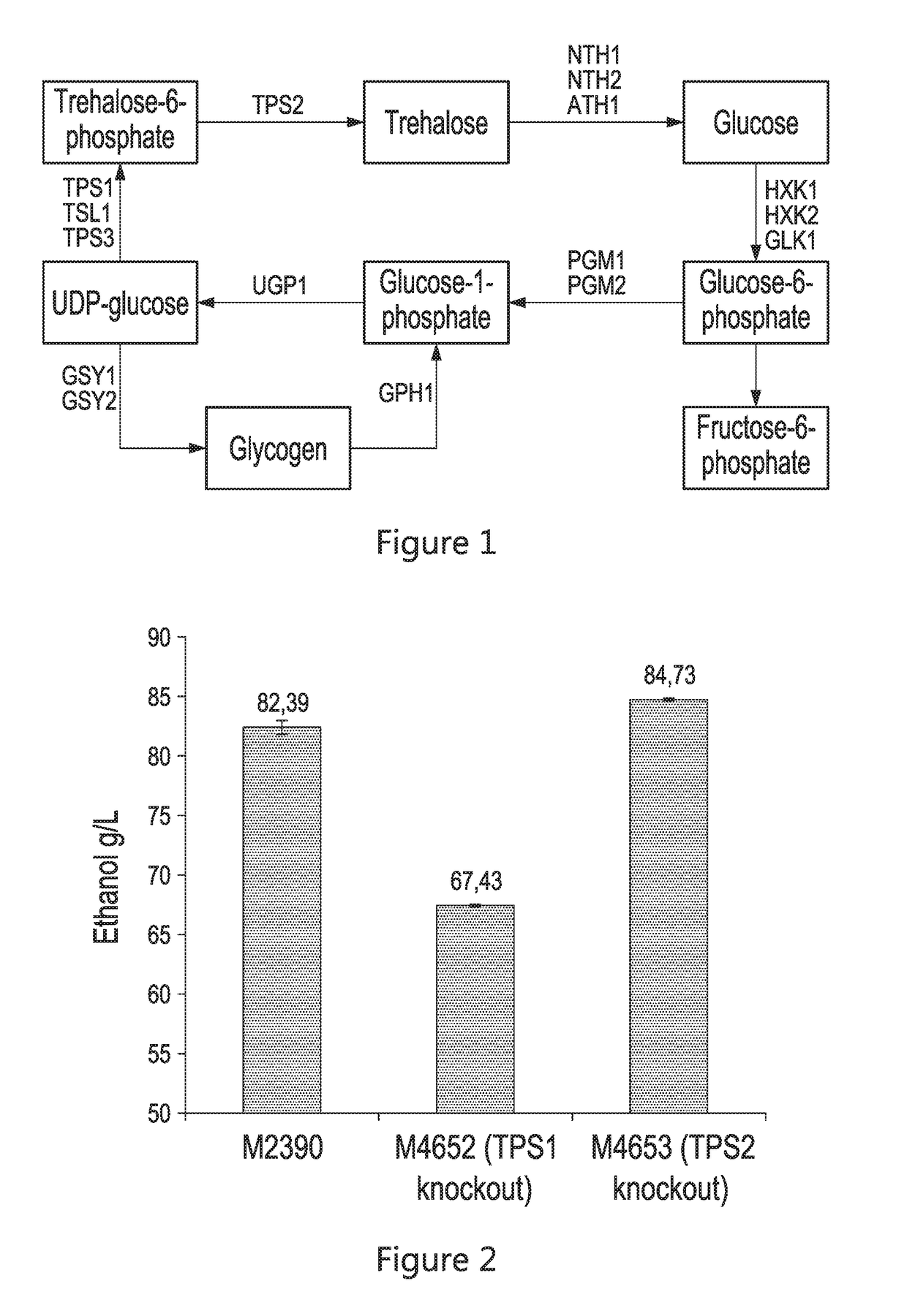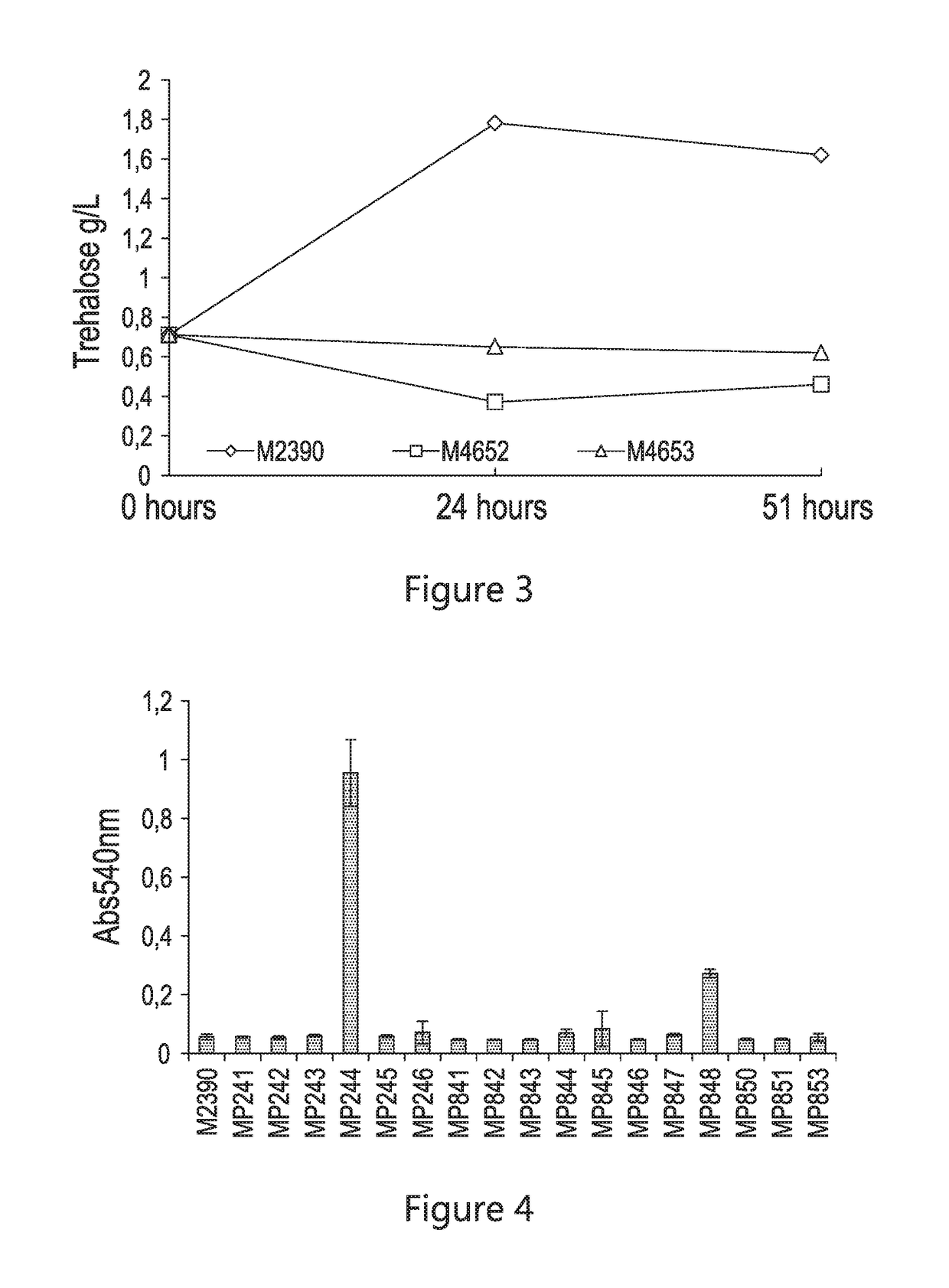Limiting yeast-produced trehalose in fermentation
- Summary
- Abstract
- Description
- Claims
- Application Information
AI Technical Summary
Benefits of technology
Problems solved by technology
Method used
Image
Examples
example i
Material and Methods
[0086]Strain M4652 was constructed using the KT (Kanamycin and HSV-thymidine kinase) and NT (nourseothricin and HSV-thymidine kinase) recyclable MX cassettes (FIG. 8A) targeting a direct integration and removal of the tps1 open reading frame. The KT-max and NT-max cassettes were PCR amplified, along with non-coding 5′ and 3′ flanks, creating overlapping homologous ends to promote recombination in vivo. The PCR products were transformed into the diploid Saccharomyces cerevisiae host strain, M2390, and subsequently selected on YPD containing G418 (200 μg / ml) and cloNat (100 μg / ml) to select for removal of both tps1 alleles. Table 1 below provides the nucleic acid sequence of the primers used to make the MA613 genetic cassette used to create the M4652 strain.
TABLE 1Nucleic acid sequence of the primersused to make the MA613 genetic cassetteused to create the M4652 strain.SEQTargetID NO:SequenceTPS1 5′19GCAGAGGATTACTTGGACATTAACGGFlankTTCTCCTATC20GGACGAGGCAAGCTAAACAGAT...
example ii
Elimination of Key Biosynthetic Genes for the Production of Trehalose
[0097]The material, methods and strains used in this example were presented in Example I.
[0098]In order to down regulate / eliminate trehalose production, the native genes responsible for the primary synthetic functions (tps1 and tps2) were individually knocked out in the conventional (wild-type) strain M2390. The M4652 and M4653 strains were then evaluated in corn mash fermentation to characterize ethanol production and residual trehalose. As shown in FIG. 2, the Δtps2 strain (M4653) performed well, providing an additional 2.2 g / L of ethanol production over the conventional strain (M2390), coupled with an 86% reduction in residual trehalose (FIG. 3).
example iii
Expression and Secretion of Heterologous Trehalases Targeting Hydrolysis of Residual Trehalose
[0099]The material, methods and strains used in this example were presented in Example I.
[0100]In order to target the hydrolysis of residual trehalose in an ethanol fermentation, various heterologous trehalases were cloned by integrating 2 copies of the sequence into the conventional yeast host background (M2390) and expressed in S. cerevisiae. The screened heterologous trehalase sequences are presented in Table 7.
TABLE 7Amino acid sequence of the heterologous trehalase presented in FIG. 4.SourceAccession #SEQ ID NO:MP241BacillusamyloliquefaciensCCG513844MP242Debaryomyces hanseniiCAG872775MP243Aspergillus nigerCAK435266MP244Aspergillus fumigatusXP_7485511MP245Trichoderma reeseiEGR456587MP246KluyveromyceslactisCAG993348MP841Schizosaccharomyces pombeNP_5950869MP842Neurospora crassaXP_960845.110MP843Candida albicansCAA64476.111MP844Debaryomyces hanseniiXP_45910912MP845Candida glabrataAGG126341...
PUM
| Property | Measurement | Unit |
|---|---|---|
| Acidity | aaaaa | aaaaa |
Abstract
Description
Claims
Application Information
 Login to View More
Login to View More - R&D
- Intellectual Property
- Life Sciences
- Materials
- Tech Scout
- Unparalleled Data Quality
- Higher Quality Content
- 60% Fewer Hallucinations
Browse by: Latest US Patents, China's latest patents, Technical Efficacy Thesaurus, Application Domain, Technology Topic, Popular Technical Reports.
© 2025 PatSnap. All rights reserved.Legal|Privacy policy|Modern Slavery Act Transparency Statement|Sitemap|About US| Contact US: help@patsnap.com



